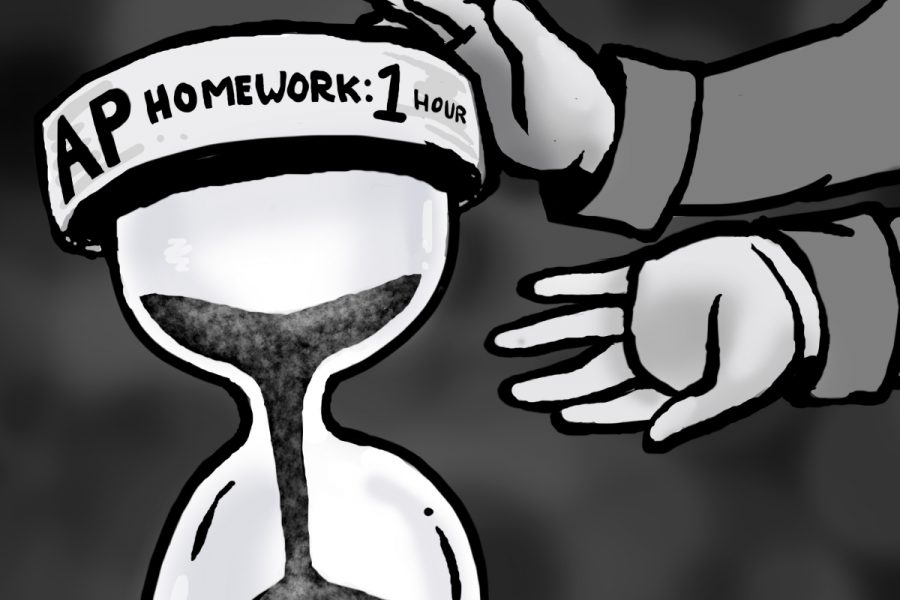New Homework Policy Brings Mixed Reactions
In an effort to decrease overall student stress, last May the MVLA School Board passed the final draft of a homework policy detailing how homework will be assigned.
The policy marks a step by the district administration toward addressing issues of student well-being by setting regulations on course workload. Previously, no district-wide homework policy with detailed guidelines existed.
The policy sets time constraints on course homework and bans all summer homework. Additionally, the policy prohibits teachers from assigning homework over breaks, with the exception of AP classes during April Break for AP exam review.
The policy states that normal classes should have around two to three hours of homework a week, while honors and AP classes should have four to five hours of work. This translates to 30 to 45 minutes of homework for normal classes and 60 to 75 minutes of homework for honors and AP classes daily.
Despite its intentions to reduce stress, some believe the policy won’t have the desired effect. The possibility that students may still overload themselves with strenuous classes concerns math teacher Matt Chaffee.
“[Students] think they need to take as many honors and AP classes as they possibly can and that that will give them an edge to get into better colleges,” Chaffee said. “The policy won’t necessarily make kids think twice about taking that extra honors or AP class.”
Yet sophomore Lauren Wang believes the time limits will decrease student stress with workloads that require a consistent set amount of time.
“Some days you have no homework and others you have two hours from one class, which makes it hard to use time effectively and plan well,” Lauren said. “The policy is a better guideline and students [will know] how much time they need to spend on homework.”
Senior Jonathan Shi thinks the time limitation on homework might be hard to enforce because all students work through concepts at a different pace.
“Teachers care about how much homework their kids are getting, but the main problem is that everyone does their homework at different paces,” Jonathan said. “For some classes you just need to put in a lot of work to understand the concept.”
The ban on summer homework constitutes another aspect of the new policy.
The removal of summer homework primarily affects AP Language and Composition and Algebra II Honors. Students in AP Language and Composition read “East of Eden” by John Steinbeck over the summer, while Algebra II Honors assigned a summer review packet.
Chaffee believes the summer packet was necessary to prepare students for the class.
“The packet didn’t put too much stress on people, and it was good review for kids entering Algebra II Honors to make sure they understood they had to be solid in Algebra I,” Chaffee said.
The loss of the “East of Eden” unit disheartened senior Margo Lusinchi because the book allowed her to bond with her classmates and dive into the course.
“We got right into the class and every single day we were having these Socratic seminars, forming a circle and having a class discussion,” Margo said. “I got to know people through their ideas and the way they analyzed the book.”
Chaffee concludes that talking about student stress is a good start toward finding solutions.
“Talking about these types of things is a step in the right direction as opposed to people assigning whatever homework,” Chaffee said. “I don’t know if this is the end-all solution to those types of issues or problems though.”

Legend says that if you reach deep enough into the inside pocket of Danny’s leather jacket, past the hordes of pens and six-sided dice moping dejectedly,...



